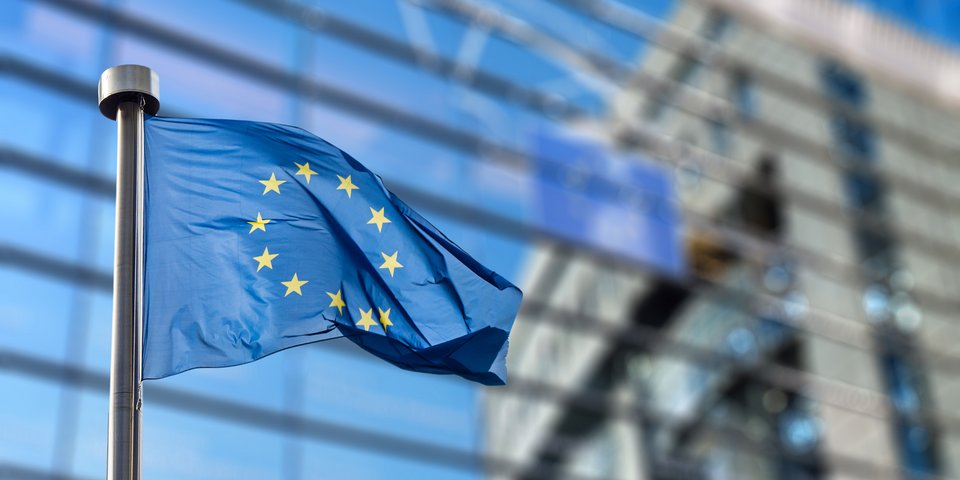 IStockphoto-artJazz
IStockphoto-artJazzThe Belgian Council Presidency: What is to be expected?
When the Spanish Council Presidency ends, the country will pass the baton on to Belgium.
MHW – 11/2023
The Belgian Council
Presidency is about to start. Belgium will play a key role in shaping the
future of the EU from 1 January to 30 June 2024. Prime Minister Alexander De
Croo will present the Council Presidency's final programme on 8 December 2023. However,
the main outlines are already clearly defined.
The Belgian Presidency is placing particular
importance on the legislative component, with the aim of finalising a large
number of legislative proposals before the end of the EC's current term of
office. In fact the Belgian Council Presidency is actually running out of time
very quickly, as the dossiers have to be finalised in the European Parliament
by March/April at the latest. MEPs will then be campaigning for the European
elections scheduled for June.
There is still homework to do.
Sensitive issues such as the migration and
asylum pact, the Net-Zero Industry Act as part of the Green Deal, the reforms of the EU electricity market design and of the Stability and Growth Pact
are still pending. The Belgian Council Presidency would like to finalise these
and other legislative dossiers. It also hopes to lay a solid foundation for the
EU's strategic agenda for the 2024–2029 period.
Belgium wants to set priorities in a total of
six strategic areas: security, defence and migration; rule of law and
democracy; economy, internal market and trade; social policy, employment and
health; the green transition and the future of the EU.
What can we expect with regard to health?
The focusing on health during the Belgian
Council Presidency is particularly noteworthy. According to a leaked guideline, the focus should be on the resilience of
healthcare systems, healthy populations, the healthcare workforce, secure
medicinal product supplies, unmet needs and antibiotic resistance. Belgium will
actively tackle the problem of medicinal product shortages and plans to include
the production of critical medicines in the Strategic Technologies for Europe
Platform (STEP).
The Belgian Presidency will also endeavour to
make progress in the negotiations on pharmaceutical legislation. Planned informal
and formal Health Councils to be held in April and June 2024 will deal with
legislative and non-legislative measures, including the reform of EU
pharmaceutical legislation, the European Health Data Space (EHDS) and
implementing the EU Health Union.
What about social policy?
Belgium wants the EU to develop a strong social
agenda for the next legislative period. In view of the current challenges,
which include an ageing population and environmental and technological changes,
Belgium is emphasising the importance of decent wages, high-quality work and
strong social security. Focus should also be on the health and well-being of
its citizens.
Here too, the Belgian Council Presidency has
set itself the goal of finalising ongoing dossiers, which include the directive
for improving the working conditions of platform workers, revising the EU
regulation that coordinates the social security systems and the European
Disability Card.
It is also aiming to implement the European
Social Charter for the forthcoming 2024–2029 legislative period. Issues such
as health and safety in the workplace (including mental health) as well as
access to social security will play a central role here. The Belgian Council
Presidency will pay particular attention to the gender pay gap in pensions and
promote social protection measures such as the European Child Guarantee and the
European Strategy for People with Disabilities. Social dialogue, including the
Right to Disconnect initiative, will also be driven forward.
In order to make progress on these matters, two
informal EPSCO Council (Employment, Social Policy, Health and Consumer Affairs Council) meetings are planned at the beginning of January 2024 as
well as two formal meetings at the beginning of March and probably in mid-June. A major joint EPSCO and ECOFIN (Economic and Financial Affairs Council)
meeting is also planned at this time.
Green transition and EU enlargement remain on the menu
The green transition also remains the focus of
the Belgian Presidency, which aims to implement the European Green Deal whilst
ensuring that the transition is socially just.
Finally, Belgium intends to actively shape the
future of the EU, especially with regard to accelerated EU enlargement. The
Belgian Council Presidency is committed to including the candidate countries
currently under consideration (Ukraine, Moldova and Bosnia and Herzegovina) as
well as possible future candidate countries (Georgia) in the enlargement
process, albeit with caution. Belgium will ensure that countries that have been
given the prospect of accession push ahead with the necessary reforms and fulfil
the Copenhagen criteria.
Further steps
The Belgian Council Presidency faces the
challenge of uniting the interests of the member states in the aforementioned
strategic areas and creating a sustainable basis for the future of the EU.
